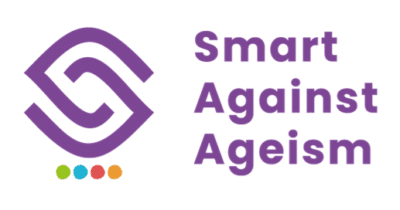The project enabled 15 international Ph.D. Students to advance the research and policy on ageism, e.g. in relation to access to goods and services.

> Timeline: November 2017 – October 2021
> Keywords: ageism, human rights, non-discrimination.
Description
Europe has the largest percentage of older adults worldwide. Yet, there is a high prevalence of ageism. To date the majority of research has targeted racism and sexism and neglected to address ageism. A similar neglect is found on the policy side, as age is still not an explicit part of a UN declaration of human rights.
The EuroAgeism project, in which AGE is participating, seeks to address these shortcomings by enabling young researchers to dedicate themselves to the subject in the course of their PhD. Euroageism is a multi-disciplinary, multi-sectorial, science-policy international network of researchers, policy makers and social and health care professionals aimed at changing how we think, feel and act about age. This will be achieved through the training of 15 international Ph.D. Students to bridge the existing gap between science and policy while also advancing the research and policy in the area of ageism. By pursuing 15 research projects it aims to explore the different ways to:
- improve the active participation of older adults in the workforce;
- address ageism in relation to access to goods and services,
- promote an age-friendly society, which helps older adults to realize their full potential.
This project, launched on 16th November 2017, has received sponsorship from the Marie Skłodowska-Curie EU Framework for Research and Innovation Horizon 2020 and is coordinated by an international consortium and the Research Executive Agency of the European Commission.
AGE involvement
During a 3-year period AGE will host a researcher who will evaluate how non-discrimination law influences the inclusion of older persons.
A variety of research shows that age discrimination takes place in the EU. There are different legal regulations European Union law (Article 10 or 19 of the TFEU[1], Article 21 of the CFR[2] and the Employment Equality Directive 2000/78/EC) which explicitly prohibit age as a ground of discrimination. However, in some countries, like Austria, the national protective legislation on age discrimination covers for the most part only employment law issues, while the access to goods, services, accommodation and education is not protected. Other countries like Ireland enacted further legislation (e.g. Equal Status Acts) to prohibit this kind of discrimination. These differences in the legal framework form the basis for the different (legal) handling of age discrimination affect how older adults experience discrimination.
Hence, the study of the researcher hosted by AGE has two goals: The first one is to describe differences in age discrimination experience between older adults who live in a country that provides legal protection and those who live in a country without this kind of legislation. The second goal is to explore how differing legal situations are connected to the different experiences.
The major goal of this study is to provide solid empirical evidence regarding the differences in older people’s experience with legal systems, which either provide or lack protective legislation in the case of age discrimination.
Useful links
- Website: https://euroageism.eu/
- Facebook: https://www.facebook.com/ITNEuroAgeism/
- Twitter: https://twitter.com/ITNEuroAgeism
- Contact person: Nena Georgantzi or Maciej Kucharczyk






